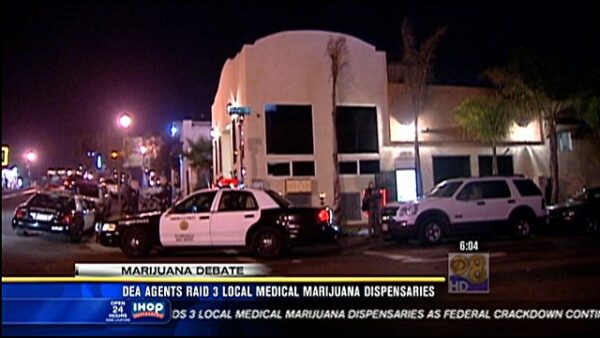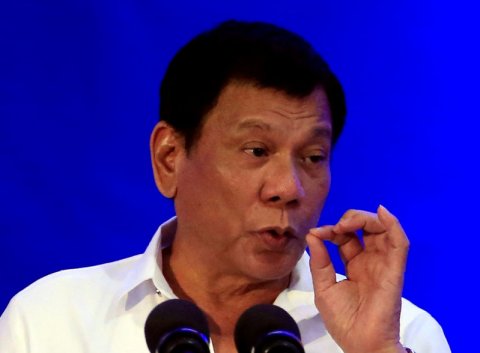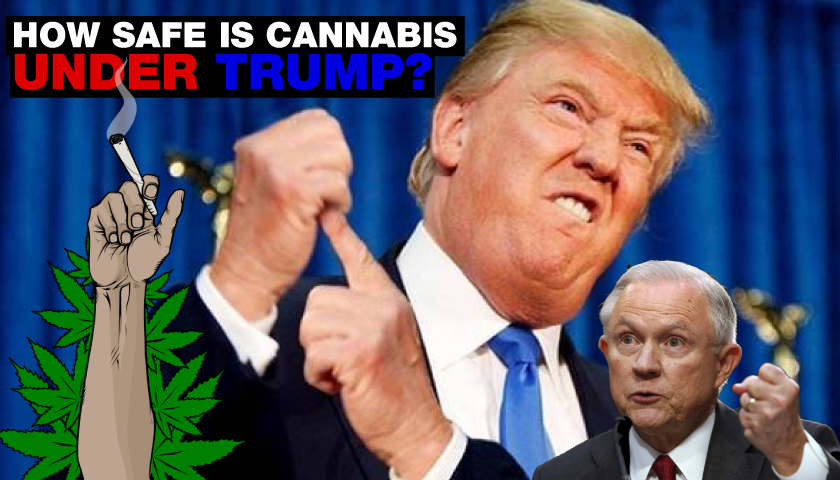Donald Trump and Jeff Sessions seem hell-bent on dragging US drug policy back to the eighties, but doing so would have potentially disastrous consequences at home and abroad. Last week, Attorney General Sessions repealed the Cole Memo – an Obama-era policy directive which essentially paved the way for the legalisation of cannabis by instructing federal law enforcement not to prioritise the enforcement of federal drug law in states with medical and/or adult-use cannabis laws.
The Memo had been seen as a green light by cannabusinesses, who capitalised on the government’s official hands-off approach and created a flourishing market in states such as Colorado and Oregon, but who could now see their livelihoods come under threat from the Trump administration.
By rescinding it, Sessions – a longtime opponent of drug policy reform – has put the onus back onto federal prosecutors, who must now decide whether to target state-legal dispensaries. Whilst his action does not guarantee that these businesses will be shut down, it does send a powerful message: that the new administration intends to clamp down on legal cannabis sales. It is likely only the beginning of a new war on cannabis, one which could have wide-ranging repercussions.
Most obviously, it could lead to the loss of tens of thousands of jobs, and the return of large scale violence as criminal gangs resume to take control of the hugely profitable industry. More than that, it would deprive states of millions of dollars of taxes – money which has been earmarked for schools, infrastructure, and healthcare, among other things. Not to mention the damage a clampdown could do to the very fabric of democracy in the United States. Millions of Americans have voted for legal marijuana, be it medicinal or recreational, and the latest Gallup polls show nationwide support for full legalisation.
Sessions’ decision to end the government’s policy of allowing states to implement cannabis legalisation and harm reduction initiatives has received swift condemnation from both Republicans and Democrats. In Colorado, where cannabis has been legal for adult use since 2014, Senator Cory Gardner tweeted that the decision “directly contradicts what Attorney General Sessions told me prior to his confirmation,” and vowed to “take all steps necessary, including holding up DOJ nominees, until the Attorney General lives up to the commitment he made to me prior to his confirmation.”

Julia Brownley (D-Calif.) also tweeted disapprovingly about the move, writing that “The state of California has the right to enact its own policies on marijuana, and the voters have spoken. Rather than wasting taxpayer money going after medical and recreational marijuana users, Attorney General Sessions should concentrate on protecting Americans from criminals.”
The general feeling is that a nation-wide shutdown of state-legal cannabis businesses is unlikely – especially now that California’s regulated market has gone live, increasing the number of Americans with access to legal cannabis by almost 40 million – but a number of US attorneys have issued statements which could be of concern. Notably, Andrew Lelling, the US attorney in Massachusetts, called cannabis a “dangerous drug”, and vowed that “This office will pursue federal marijuana crimes as part of its overall approach to reducing violent crime, stemming the tide of the drug crisis and dismantling criminal gangs.”
In southern California, US attorney Adam Braverman released a statement pointing out that “cultivation, distribution and possession of marijuana has long been and remains a violation of federal law,” adding, “We will continue to utilize long-established prosecutorial priorities to carry out our mission to combat violent crime, disrupt and dismantle transnational criminal organizations and stem the rising tide of the drug crisis.”
Whilst many are convinced that these statements merely refer to the ongoing efforts of federal and state law enforcement to go after large-scale traffickers and organised crime gangs who circumvent state laws as well as federal, the latest news out of the Trump White House may give cause for alarm.

Speaking in a press conference at Camp David, Trump claimed that the key to ending “the drug problem” is to be “very harsh.”
“Whether it’s opioids or drugs in the traditional sense, it’s never been like it is,” Trump said, “but we are going to do everything we can. It’s a very difficult situation, difficult for many countries. Not so difficult for some, believe it or not, they take it very seriously, they’re very harsh, those are the ones that have much less difficulty. But we are going to be working on that very, very hard this year, and I think we’re going to make a big dent into the drug problem.”
Whilst not specifically aimed at cannabis, Trump’s words are deeply troubling for the future of the war on drugs and drug policy reform more generally. They suggest that he now favours stricter penalties for drug users over harm reduction methods – supervised injection facilities, heroin prescriptions, naloxone, etc – as a means to combat the opioid ‘epidemic’ that has claimed the lives of so many Americans.
Despite Trump’s claims, there is no evidence that harsher penalties are effective at reducing drug abuse or overdoses. Countries that have gone down that route have not seen success. For example, the Philippines, where President Duterte vowed to kill every drug user and dealer, has seen thousands die, with little to no impact on the availability and rates of use of drugs. Being “very harsh” on drugs has simply amounted to something akin to genocide.
In stark contrast to that, Portugal, where all drug possession was decriminalised in 2001, has seen rates of drug use fall substantially. Overdose rates in the country are now amongst the lowest in the world, and they’ve even seen a dramatic drop in new cases of HIV/AIDS.

Even countries that have not waged a Duterte-style war, but have rather carried on with the status quo of arresting drug users, have not been able to reduce harm. In fact, in [delete ‘in’?] Scotland, which back in 2001 was experiencing strikingly similar rates of heroin use to Portugal, has since seen an explosion in the number of drug related deaths and diseases.
Ramping up the ‘tough on drugs’ rhetoric is one thing; but should President Trump actually go through with his threat to open up a new front in the war on drugs, the results could be truly catastrophic, and not just in the US. In countries like Mexico and Columbia, the war on drugs has already lead to the loss of hundreds of thousands of lives, most of them innocent civilians.
The violence in these countries is still appalling now, despite a general move towards decriminalisation of drug possession, and the shrinking of the market for imported weed thanks to the spread of legalisation in the USA. Moving away from that path will ensure that any amount of progress that has been made toward ending the bloodshed and endemic corruption caused by decades of being “very harsh” is lost. It is unlikely that Messrs Trump and Sessions have given a second thought to the impact their actions might have south of the border, but they should.
In short, attempting to control drug use by force has never worked, and will not work now. Whether it is Sessions’ attempts to curtail the spread of legal cannabis based on [nothing more than personal prejudice?] his own prejudices, or Trump’s vows to usher in a new era of harshness, the signs all point to a bleak future for drug policy in the United States. It may be that these are simply the last flailing attempts of desperate prohibitionists to block progress, as some have claimed but it is indicative of the kind of anti-scientific and just plain harmful thinking that is coming out of the White House on a daily basis. What seems certain, is that it will still be hugely damaging to those caught in the firing line.
Deej Sullivan
Don’t forget to follow the work of LEAP UK – Law Enforcement Against Prohibition by visiting their website and listening to the Stop N Search podcast.
Find out where your nearest club is via our interactive map.




